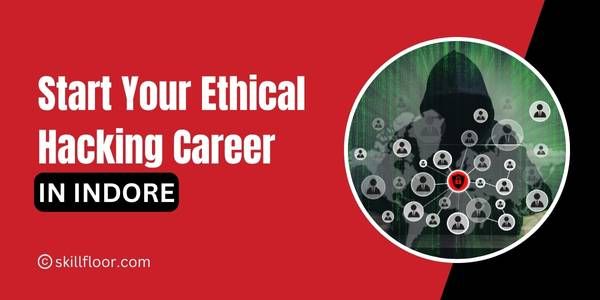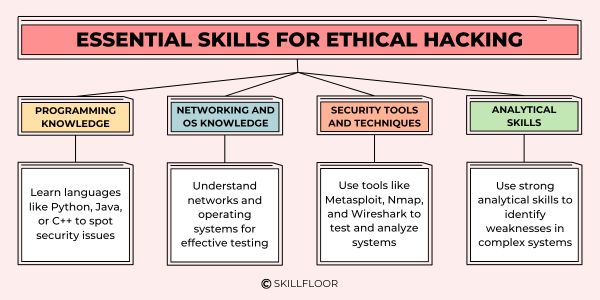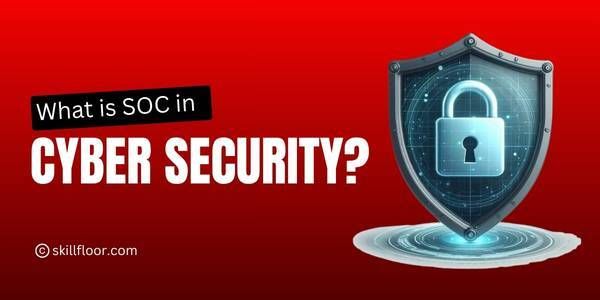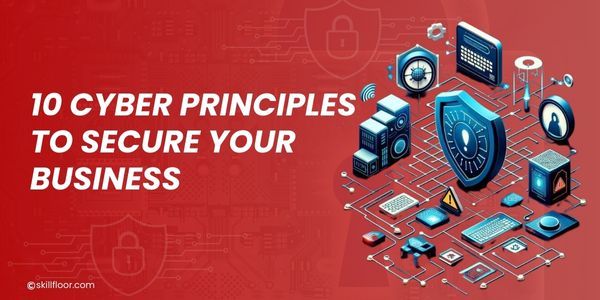How to Start Your Career in Ethical Hacking from Indore
Start your career in ethical hacking from Indore with expert guidance. Learn about courses, certifications, essential skills, job opportunities, and salary expectations in the growing field of cybersecurity.

Are you curious about hacking but want to use your skills for good? If yes, starting a career in ethical hacking could be the right path for you. As someone who has worked as a cybersecurity expert for several years, I can tell you that ethical hacking is all about finding weaknesses in systems and fixing them to make everything more secure. It’s not about breaking into systems for bad reasons it's about making the digital world safer. And the best part is, if you're in Indore, there are plenty of opportunities to begin your career in ethical hacking.
Indore has a growing tech industry, and there are many chances for people who want to work in cybersecurity. Whether you’re just starting or have some experience, you’ll find several Ethical Hacking courses in Indore, training centers, and online resources that can help you learn what you need. Here, I’ll take you through the steps to begin your career in ethical hacking, share insights from my own experience, and show you how you can contribute to making the world of cybersecurity safer.
What is Ethical Hacking?
Ethical hacking is the process of legally testing and evaluating computer systems, networks, and software applications for security weaknesses. Ethical hackers are authorized to break into systems with the permission of the owner to identify and fix potential vulnerabilities. Unlike malicious hackers who exploit these weaknesses for personal gain, ethical hackers use their skills to protect and secure systems, making them an essential part of modern cybersecurity teams.
The role of an ethical hacker includes tasks such as penetration testing, vulnerability scanning, and risk assessments. By finding vulnerabilities before cybercriminals do, ethical hackers play a crucial role in protecting sensitive information from theft, loss, or damage.
Why Ethical Hacking is a Growing Field in Indore
The demand for cybersecurity professionals is growing fast across the globe, and Indore is no exception. With the rise of the digital economy and the increasing number of cyber threats, organizations in Indore, especially startups and tech companies, are actively looking to hire skilled professionals in cybersecurity. The city is home to a growing IT sector and many educational institutions offering programs focused on cybersecurity, making it an ideal place to start your career in ethical hacking.
Furthermore, Indore’s tech ecosystem continues to expand, meaning more companies are in need of cybersecurity experts. This growth translates into more job opportunities, internships, and chances to network with professionals in the industry.
Essential Skills for Ethical Hacking
To succeed in ethical hacking, you need to build a strong foundation of technical skills. Here are some of the key skills you should focus on:
-
Programming Knowledge: Understanding programming languages like Python, Java, or C++ is essential. It allows you to analyze and write scripts to find security flaws in applications and systems. Additionally, a good knowledge of web technologies such as HTML, JavaScript, and SQL can be crucial when working with websites and online applications.
-
Networking and OS Knowledge: A deep understanding of how networks work is crucial. Ethical hackers need to know how to analyze network traffic, identify vulnerabilities, and understand how different operating systems (Windows, Linux, etc.) function. This knowledge will allow you to perform network scans and system penetration tests efficiently.
-
Security Tools and Techniques: Familiarize yourself with security tools like Metasploit, Nmap, Wireshark, and Burp Suite. These tools help you scan, test, and exploit systems in a safe and controlled environment. In addition, tools like Wireshark allow you to analyze network traffic, while Burp Suite is essential for testing the security of web applications.
-
Problem-Solving and Analytical Skills: Ethical hacking involves thinking creatively and out of the box to uncover security vulnerabilities. Strong analytical skills will help you identify weak points in complex systems. Being curious and having the ability to troubleshoot and test different methods will set you apart from others in the field.

Steps to Get Started with Ethical Hacking
Step 1: Learn the Basics of Networking and Programming
Before getting into ethical hacking, it's important to have a strong understanding of networking and programming. Start with the basics of networking and gradually move to more advanced concepts. There are many free resources online to learn about networking, including videos, tutorials, and books. For programming, you can start learning Python, which is beginner-friendly and used a lot in cybersecurity.
Step 2: Get Familiar with Operating Systems
As an ethical hacker, you’ll likely use Kali Linux, a popular operating system that comes preloaded with security tools. You can install Kali Linux on your computer or run it on a virtual machine (VM) on your existing operating system. Familiarize yourself with both Windows and Linux, as most organizations use a combination of both. Windows has some unique vulnerabilities that hackers can exploit, so it's important to understand its security features and how to test them.
Step 3: Take Ethical Hacking Courses and Get Certified
While formal education in computer science or cybersecurity is helpful, ethical hacking is a field where hands-on experience is just as important as your academic qualifications. Here are the steps you can take to start:
-
Courses and Degrees: If you're just starting, you can pursue a degree in computer science, information technology, or cybersecurity. Skillfloor is a leading training institute in Indore that offers specialized courses in cybersecurity, laying a strong foundation for a career in ethical hacking. The institute provides practical, hands-on training designed to equip students with the essential skills needed to succeed in the cybersecurity field. With expert instructors and a curriculum focused on the latest industry trends, Skillfloor helps students build the knowledge and experience required to thrive in the world of ethical hacking.
-
Online Resources: There are many online platforms where you can learn ethical hacking for free or at a reasonable cost. Websites like Udemy, Coursera, and Cybrary offer courses that cover the basics of ethical hacking, network security, and penetration testing. Platforms like Hack The Box and TryHackMe are also popular among ethical hackers for practicing real-world challenges.
-
Certifications: Earning certifications is a great way to validate your skills and increase your employability. Popular certifications in the field of ethical hacking include:
-
Certified Ethical Hacker (CEH): One of the most recognized certifications in the industry. It covers a wide range of hacking techniques and cybersecurity fundamentals.
-
Offensive Security Certified Professional (OSCP): Known for its practical, hands-on approach to ethical hacking. It’s a more advanced certification aimed at those looking to specialize in penetration testing.
-
CompTIA Security+: A good entry-level certification for those new to cybersecurity. It covers the basics of network security and is often seen as a stepping stone toward more advanced certifications.
Step 4: Build a Lab for Practice
Practice is key when learning ethical hacking. Create a safe environment where you can practice your skills without causing harm. You can set up a home lab by using virtual machines to run multiple operating systems on your computer. This will allow you to practice penetration testing, vulnerability scanning, and using hacking tools like Metasploit, Burp Suite, and Wireshark.
You can also participate in Capture the Flag (CTF) competitions, which are challenges designed to help you learn and practice ethical hacking. Websites like HackTheBox, TryHackMe, and OverTheWire offer excellent CTF challenges that simulate real-world security problems.
Step 5: Stay Updated
Cybersecurity is an ever-changing field, with new threats and vulnerabilities emerging all the time. It's crucial to stay updated on the latest cybersecurity trends and news. Follow these resources:
-
Security Blogs like KrebsOnSecurity or The Hacker News
-
Cybersecurity Podcasts like Darknet Diaries
-
Tech News Websites like Wired and TechCrunch
Building Your Portfolio and Gaining Experience
Experience is critical in the field of ethical hacking. Here are a few ways to build your portfolio:
-
Create Personal Projects: Start by setting up your own lab environment where you can safely practice hacking techniques. You can simulate attacks and vulnerabilities on your systems to test how they work. This will help you gain hands-on experience and build a portfolio to showcase your skills to potential employers.
-
Contribute to Open-Source Security Projects: Many open-source security projects need contributions. This will not only help you learn but also build your reputation in the community. Contributing to projects like Metasploit or other security tools will give you practical exposure to real-world security issues and allow you to collaborate with experienced professionals.
-
Bug Bounty Programs: Participate in bug bounty programs where companies reward you for finding and reporting security vulnerabilities in their systems. Websites like HackerOne and Bugcrowd are great platforms to get started. These programs provide you with the opportunity to earn money and recognition while enhancing your skills.
-
Internships and Entry-Level Jobs: Look for internships or entry-level roles in Indore’s growing tech scene. This will give you hands-on experience and an opportunity to work with real-world security systems. Many startups in Indore are looking for affordable cybersecurity professionals to secure their infrastructure, and internships can be a great way to get your foot in the door.
Job Opportunities and Career Pathways in Ethical Hacking
With the rise of digital technology, ethical hackers are becoming more and more important. Ethical hackers help protect computer systems, networks, and data from cyber-attacks by finding and fixing security weaknesses before hackers can exploit them. As cyber-attacks are increasing, businesses are hiring more ethical hackers to secure their systems. This has created many job opportunities in the field with different career paths to choose from.
Here are some common job roles for ethical hackers:
-
Penetration Tester (Ethical Hacker)
Penetration testers try to find security weaknesses in systems and networks before real hackers can exploit them. This role is in high demand across industries and offers good pay. -
Security Analyst
Security analysts monitor and protect systems from cyber threats, ensuring security measures are followed and managing real-time risks. -
Security Consultant
Security consultants advise companies on improving their cybersecurity. They assess current systems and recommend changes to prevent attacks. -
Security Engineer
Security engineers design and implement security systems to protect data and networks, setting up tools like firewalls and encryption. -
Incident Responder
Incident responders handle security breaches, investigate attacks, and help restore systems, quickly resolving security issues. -
Forensic Expert
Forensic experts investigate cybercrimes, analyze evidence, and help identify attackers, often working with law enforcement. -
Bug Bounty Hunter
Bug bounty hunters find and report security flaws in exchange for rewards, working independently and gaining experience. -
Chief Information Security Officer (CISO)
CISOs oversee an organization's entire cybersecurity strategy, lead security teams, and ensure systems are protected from threats.
Job Opportunities in Indore
Indore is growing as a technology hub, and as more businesses expand, the demand for cybersecurity professionals is also increasing. Many companies in Indore, including IT firms and startups, need ethical hackers to protect their digital systems.
-
IT Companies: Many companies in Indore hire ethical hackers to secure their software and applications.
-
Startups: As the startup scene in Indore grows, more businesses are looking for cybersecurity professionals to keep their platforms safe.
-
Educational Institutes: Many universities and training centers in Indore hire security professionals to protect their networks and data.
-
Consulting Firms: Some consulting firms in Indore offer cybersecurity services to other businesses, which creates job opportunities for ethical hackers.
In addition to local job opportunities, many companies in other cities and even internationally offer remote positions, allowing you to work from Indore.
Salary Expectations
The salary expectations for different ethical hacking job roles:
|
Job Role |
Salary Expectation (India) |
|
Penetration Tester |
₹4,00,000 to ₹10,00,000 per year |
|
Security Analyst |
₹3,50,000 to ₹8,00,000 per year |
|
Security Consultant |
₹7,00,000 to ₹15,00,000 per year |
|
Security Engineer |
₹5,00,000 to ₹12,00,000 per year |
|
Incident Responder |
₹6,00,000 to ₹14,00,000 per year |
|
Forensic Expert |
₹6,00,000 to ₹14,00,000 per year |
|
Bug Bounty Hunter |
Varies based on findings, can be quite profitable |
|
Chief Information Security Officer (CISO) |
₹15,00,000 to ₹30,00,000 per year |
These are general salary ranges and can vary depending on the company, experience, and location.
Challenges and How to Overcome Them
While ethical hacking can be a rewarding career, it comes with its own set of challenges:
-
Continuous Learning: Cybersecurity is a constantly evolving field, so it’s essential to stay updated with the latest tools, techniques, and threats. Follow blogs, attend webinars, and participate in online communities to stay informed.
-
Lack of Mentorship: Finding a mentor in ethical hacking can be difficult. However, joining online forums, attending events, and connecting with professionals in the field can help you find guidance.
-
Practical Experience: Gaining real-world experience can be tough when you're just starting. However, by participating in CTF challenges, contributing to open-source projects, and taking part in bug bounty programs, you can gain valuable hands-on experience.
Starting a career in ethical hacking from Indore is an exciting and rewarding opportunity, especially with the growing demand for cybersecurity professionals. By building a strong foundation in networking, programming, and understanding various operating systems, you can gradually gain the necessary skills through online courses, certifications, and hands-on practice. Engaging in local tech communities, staying updated on the latest security trends, and networking with professionals will further help you grow in this field. With dedication and continuous learning, you can successfully launch your career as an ethical hacker and contribute to safeguarding the digital world.































































